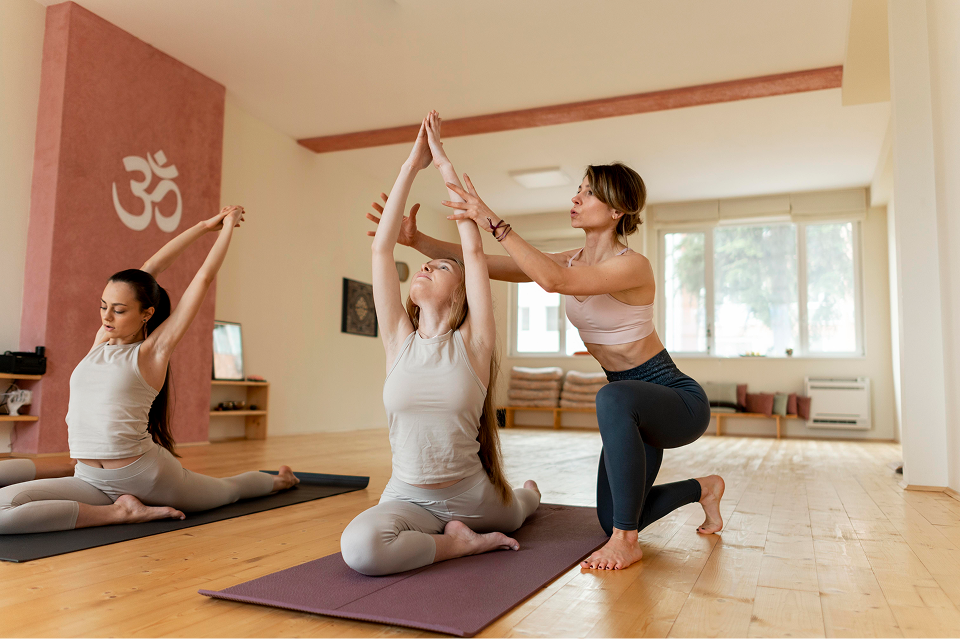
An Honest Day's Pay
Publisher's Note: This piece was first published in November 2024 on the substack of Theodora Wildcroft. It was shared with our founder Andrew Tanner right before the first AYC product strategy meetings began and it became a sort of rallying cry and inspiration for the organization. We share this article with permission from Theo and hope you enjoy. Her additional work can be found on substack.
When I first graduated as a yoga teacher, a decade or two ago, much of the yoga world was taken with what we can call peak ‘prosperity doctrine’. This idea, which actually comes more from American Protestant culture than from yogic philosophy, tells us that if your spiritual practice is on point, abundance will naturally come your way. It’s a way of not thinking about the uncomfortable moral issues inherent in financial inequalities among yoga teachers and yoga-related businesses. What it meant in practice, is that there was very little sensible discussion in most teacher trainings about how to earn money, or even not lose money, as a yoga teacher. I think most people in yoga today admit that prosperity doctrine is a morally bankrupt idea. But many yoga teachers are still uncomfortable talking about the ‘business’ side of what we do. Even to discuss money is seen as somehow ‘unyogic’. It comes across as grasping. The reality is that the only yoga teachers I’ve ever met who don’t worry about money are those that don’t have to.
So for those of you that don’t already know this – I have never earnt a proper living from teaching yoga. For much of my teaching career, yoga has been a full-time job, with part time pay, and I’ve been able to sustain that by living cheaply, not having children, and living with a partner who earns a little bit more than I do. It has been a choice I had the privilege to make. These days I earn a little more, but still very much less than an average wage, and that’s because I also work part-time for universities, and most of my yoga-related work these days is sustainably part-time – writing, guest teaching, and leading trainings. I have been working in yoga for nearly twenty years, I wrote one of the first PhDs in the world on yoga teaching, rather than yoga practice, I’m about to sign the contract on my fifth book, and I don’t know how to earn enough money to have a sensible pension pot.
The lack of transparency and clarity that persists around money in yoga is a pernicious and global issue. A few teachers make a respectable living. Very, very few make a lot of money, and you’d probably be surprised to find out who does and who doesn’t. Some well-known yoga teachers pretend to a modest lifestyle while presiding over a turnover in six figures. Others are living comfortably only because of their partner’s wealth or a former career in something very lucrative. The real money is made by those businesses that cater to yoga teachers and students, and the silly money is made by brands and corporations with very little direct connection to yoga at all.
Owning the building in which a yoga studio sits is probably your best bet for making a lot of money from yoga. Many of you know this already, but please keep reading, I have A Point To Make, I promise.
If you want to make a modest living from yoga, you probably need a business that is enhanced by yoga rather than dependent on it. Cafes and retail spaces support many of the thriving yoga spaces I know of. Otherwise, you can work as a subcontractor, in spaces where you are already comfortable and respected – teaching in schools, workplaces and so on. Or you can set up a charitable body and live year to year, hustling for grants to pay teachers to run classes for marginalised groups. If all this sounds too much like the life under capitalism you came to yoga for respite from, you can find a cheap space to rent a couple of evenings a week and become one of the invisible thousands of yoga teachers just doing their thing, part time. This latter option is probably the most sustainable.
This is the reality of yoga teaching today, and these days, more and more teacher training courses are honest about that fact. That is good. The problem is, however, that we’ve become far too comfortable with being part of a profession that costs thousands to join, and has no serious development path. I am so proud of yoga teaching as a profession because of your – our – dedication to professional learning and self-development. But I hold out hope for that journey to be properly resourced and modestly rewarded. It should, by rights, be the task of the bureaucracies that represent us to help make that happen.
Organisations like the British Wheel of Yoga, Yoga Alliance, the Independent Association of Yoga Therapists and so on sit on a varying amount of money, and pay their own staff very well to ‘promote’ and ‘advocate’ for yoga.
Most of that money comes from you as members. Unfortunately, in recent years, I think most of them have forgotten that the truly authentic, vibrant and evolving practice of yoga relies on the wellbeing and goodwill of yoga teachers. I’m generalising, but I do think that you are being expected to complete more and more paperwork, take on more and more CPD, just to stand still at best, and at worst, be undercut by yoga instructors graduating from too-short courses accredited by those same organisations. To be clear – I do not blame those instructors. Many of them end up paying all over again for a proper teacher training, having burnt out after the first one. Nonetheless, I would love to see a side-by-side comparison of: yoga bureaucracy income, the renumeration they pay their officers, and yoga teachers’ average take home pay over time.
These organisations, and yoga teacher training more generally, need a radical reform. Not to be even more up to date with the latest research in science or history, and not even to be fitter for purpose as a tool for justice, empowerment, and reconciliation with the past. Those things will happen, little by little, anyway. What we need is a reformation of yoga teacher training to provide clear and honest pathways forward for the diverse kinds of yoga teachers we want to be.
What we need is yoga membership organisations that advocate for the only effective form of yoga teaching and practice we know – teaching that is led by people with a real depth of personal practice, and a long apprenticeship in pedagogy, in the context of real relationships of community care.
These past few years, I’ve seen overt criticism of yoga-related organisations wane, but I suspect so have levels of engagement and membership. Most yoga teachers are ambivalent or apathetic about the organisations of which they feel obliged to be members. But even more recently, I’ve been watching some of those organisations make some really, really out of touch decisions, and a very polite, very yogic civil war seems to be breaking out behind the scenes.
We can’t keep pretending that you can train a healthcare worker in a few asanas and pranayamas and expect them to dole them out like a prescription after a five-minute consultation. We can’t keep pretending that yoga teachers with decades of experience have worked their entire careers for the love of it and won’t mind volunteering for nothing. And we can’t keep allowing schools and healthcare settings to pop on a YouTube video for pupils and patients and call it a win for ‘yoga’.
I’m not the only one saying this. Some good and highly respected yoga teachers have been saying the same. I’m thankful for being part of some fantastic conversations recently, especially with my comrade Rebecca Sebastian of the Working in Yoga podcast. She’s gearing up to make some righteous trouble in one yoga organisation after another, and she’s far from the only one. So, I’m curious, what do you really want from the organisations that represent you…?
This post is written with deep respect to people like Rebecca Sebastian, Davy Jones, Jivana Heyman, Norman Blair, Laura Hancock, my dear departed friend Helen Stevens, and of course Harriet McAtee for having the hard conversations with me over the years. This post is also inspired by all my socialist ancestors and a recent re-reading of China Mieville’s phenomenal novel, Iron Council. Live long, chaverim!
More posts about






